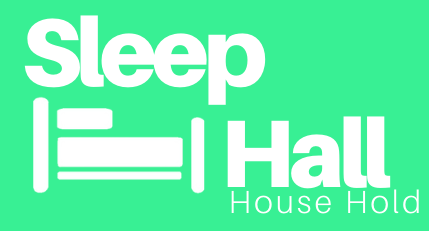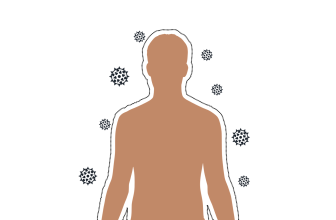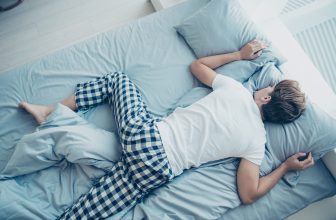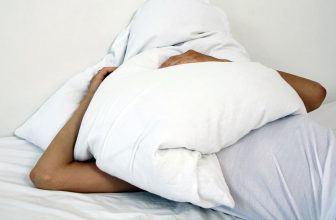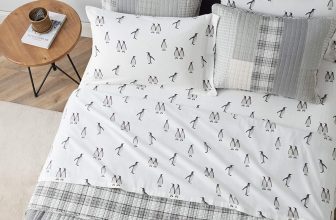sleephall.com is a participant in the Amazon Services LLC Associates Program, an affiliate advertising program designed to provide a means for sites to earn advertising fees by advertising and linking to Amazon.com so we may earn a commission when you use the links on this page to buy products , thanks.
Introduction
Sleep apnea is a common sleep disorder that affects millions of people worldwide. It is a
condition where a person’s breathing repeatedly stops and starts during sleep, often causing
snoring and a feeling of exhaustion during the day. While the symptoms of sleep apnea can be
debilitating, there are ways to fight it and improve your quality of sleep. In this article, we will
provide you with tips, tricks, and products that can help you fight sleep apnea and get the restful
sleep you deserve.
- Understand Your Sleep Apnea To fight sleep apnea, you first need to understand it. Sleep
apnea is caused by a partial or complete obstruction of the upper airway during sleep.
This obstruction can be caused by several factors, including obesity, large tonsils, a small
jaw, or nasal congestion. There are three types of sleep apnea: obstructive sleep apnea
(OSA), central sleep apnea (CSA), and complex sleep apnea syndrome (CSAS). It is
important to know which type of sleep apnea you have, as the treatment options vary
depending on the type. - Lose Weight Obesity is a major risk factor for sleep apnea. Excess weight can lead to the
narrowing of the airway and make it more difficult for air to flow in and out of the lungs.
Losing weight can help reduce the severity of sleep apnea, and in some cases, it can
eliminate it altogether. In fact, studies have shown that even a modest weight loss of 10%
can significantly improve sleep apnea symptoms. - Use a CPAP Machine Continuous Positive Airway Pressure (CPAP) is the most common
treatment for sleep apnea. A CPAP machine uses a mask that covers the nose and/or
mouth and delivers a continuous stream of air pressure to keep the airway open. While a
CPAP machine can take some getting used to, it is highly effective in treating sleep
apnea. - Try Oral Appliances If you have mild to moderate sleep apnea, you may be a candidate
for an oral appliance. These devices are custom-made by a dentist and are designed to
reposition the jaw and tongue to keep the airway open during sleep. While oral
appliances are not as effective as CPAP machines, they are a good option for those who
find CPAP machines uncomfortable or who travel frequently. - Practice Good Sleep Hygiene Good sleep hygiene can help improve the quality of your
sleep and reduce the severity of sleep apnea symptoms. Some tips for good sleep hygiene
include:
Going to bed and waking up at the same time every day
Avoiding caffeine, alcohol, and nicotine before bedtime
Creating a relaxing sleep environment (cool, dark, and quiet)
Avoiding large meals and excessive fluid intake before bedtime
Getting regular exercise - Use a Sleep Tracker A sleep tracker can help you monitor your sleep patterns and identify
factors that may be contributing to your sleep apnea. There are many different types of
sleep trackers available, from simple wearable devices to advanced apps that can analyze
your sleep data and provide personalized recommendations for improvement. - Consider Surgery In some cases, surgery may be necessary to treat sleep apnea. Surgery
options include:
Uvulopalatopharyngoplasty (UPPP): This surgery involves removing excess tissue from
the throat to widen the airway.
Maxillomandibular advancement (MMA): This surgery involves moving the upper and
lower jaw forward to create more space in the airway.
Tracheostomy: This surgery involves creating a hole in the front of the neck and inserting
a tube to allow air to bypass the blocked airway.
While surgery
If you have been diagnosed with sleep apnea, it is important to follow your doctor’s
recommended treatment plan. However, there are also some lifestyle changes and home remedies
that can help alleviate symptoms and improve sleep quality. With a few adjustments, you can
start sleeping better and waking up feeling more refreshed.
- Maintain a healthy weight: Being overweight or obese is a major risk factor for sleep
apnea. Excess weight can contribute to airway obstruction and make breathing more
difficult during sleep. Losing weight can help reduce the severity of sleep apnea and
improve overall health. - Sleep on your side: Sleeping on your back can cause the tongue and soft tissues in the
throat to relax and block the airway. Sleeping on your side can help keep the airway open
and reduce the frequency and severity of sleep apnea episodes. - Elevate your head: Raising the head of your bed by a few inches can help keep the airway
open by reducing the gravitational pull on the neck and throat. Alternatively, you can use
a wedge pillow or adjustable bed to achieve a similar effect. - Avoid alcohol and sedatives: Alcohol and sedatives can relax the muscles in the throat
and make sleep apnea worse. Avoid consuming these substances before bedtime, and talk
to your doctor about alternative medications if necessary. - Quit smoking: Smoking can cause inflammation and irritation of the airway, making it
more difficult to breathe during sleep. Quitting smoking can improve overall health and
reduce the severity of sleep apnea. - Practice good sleep hygiene: Establish a regular sleep schedule and stick to it, even on
weekends. Create a relaxing bedtime routine to help signal to your body that it is time for
sleep. Keep the bedroom cool, quiet, and dark, and avoid using electronics in bed. - Use a humidifier: Dry air can irritate the airway and make breathing more difficult during
sleep. Using a humidifier can help keep the air moist and reduce symptoms of sleep
apnea.
In addition to these lifestyle changes, there are also several products available that can help
alleviate symptoms of sleep apnea:
- Continuous positive airway pressure (CPAP) machine: This is the most common
treatment for sleep apnea. CPAP uses a mask worn over the nose or mouth to deliver a
continuous stream of air to keep the airway open during sleep. - Oral appliances: These devices are worn in the mouth to help reposition the jaw and
tongue and keep the airway open during sleep. - Positional therapy devices: These devices are designed to help keep you sleeping on your
side and prevent you from rolling onto your back. - Nasal dilators: These small devices fit inside the nostrils to help keep the airway open
and improve airflow during sleep. - Smartwatches and sleep trackers: These devices can track your sleep patterns and help
identify factors that may be contributing to sleep apnea. They can also provide insights
into the effectiveness of treatment.
By making lifestyle changes and using these products, you can help alleviate symptoms of sleep
apnea and improve sleep quality. However, it is important to consult with your doctor before
making any significant changes to your treatment plan.
In conclusion, sleep apnea is a serious condition that can significantly impact your quality of life.
However, with proper treatment and lifestyle changes, it is possible to manage symptoms and get
the restful sleep you need. By following these tips and utilising the products available, you can
start sleeping better and waking up feeling more refreshed
Product Recommendations
1) Philips Respironics DreamWear Full Face Mask – This full face mask is designed to be comfortable and minimize contact with the face, reducing the risk of mask-related irritation. It's compatible with a variety of CPAP machines and can help improve airflow for better sleep.2) ResMed AirSense 10 AutoSet CPAP Machine – This auto-adjusting CPAP machine can
automatically adjust pressure levels based on your needs throughout the night, ensuring
consistent airflow and better sleep quality.
3) Eargasm High Fidelity Earplugs – If your sleep apnea is worsened by noise, these high-
fidelity earplugs can help block out unwanted sounds without muffling speech or music.

4) Bed Wedge Pillow – A bed wedge pillow can help elevate your head and neck, reducing
the severity of sleep apnea symptoms by keeping the airway more open.
These products can be used in combination with lifestyle changes and medical treatments to help
manage sleep apnea symptoms and improve sleep quality. As always, it’s important to talk to
your doctor about which products are best suited for your individual needs.
Conclusion
Sleep apnea is a serious condition that can have a major impact on your health and well-being. If
you suspect you have sleep apnea, it’s important to seek medical attention and get a proper
diagnosis. There are many treatment options available, from lifestyle changes to medical devices
to surgery. With the right treatment, you can improve
Scientific References
- Franklin, K. A., & Lindberg, E. (2015). Obstructive sleep apnea is a common disorder in the population-a review on the epidemiology of sleep apnea. Journal of thoracic disease, 7(8), 1311–1322. https://doi.org/10.3978/j.issn.2072-1439.2015.06.11
- Mayo Clinic. (2018, December 11). Sleep apnea. https://www.mayoclinic.org/diseases-conditions/sleep-apnea/diagnosis-treatment/drc-20377636
- Weaver, T. E., & Grunstein, R. R. (2008). Adherence to continuous positive airway pressure therapy: the challenge to effective treatment. Proceedings of the American Thoracic Society, 5(2), 173–178. https://doi.org/10.1513/pats.200708-119MG
- Sharples, L. D., Clutterbuck-James, A. L., Glover, M. J., Bennett, M. S., Chadwick, R.,Pittman, M. A., & Eastwood, P. R. (2012). Meta-analysis of randomized controlled trials of oral mandibular advancement devices and continuous positive airway pressure forobstructive sleep apnea-hypopnea. Sleep medicine reviews, 16(5), 531–542. https://doi.org/10.1016/j.smrv.2011.12.003
- Sengupta, S. (2013). Sleep disorders in geriatric population. Indian journal of psychiatry, 55(6), 6–10. https://doi.org/10.4103/0019-5545.105518
